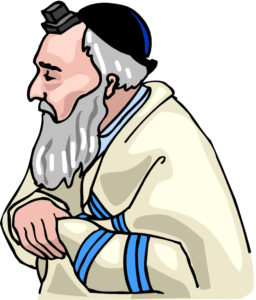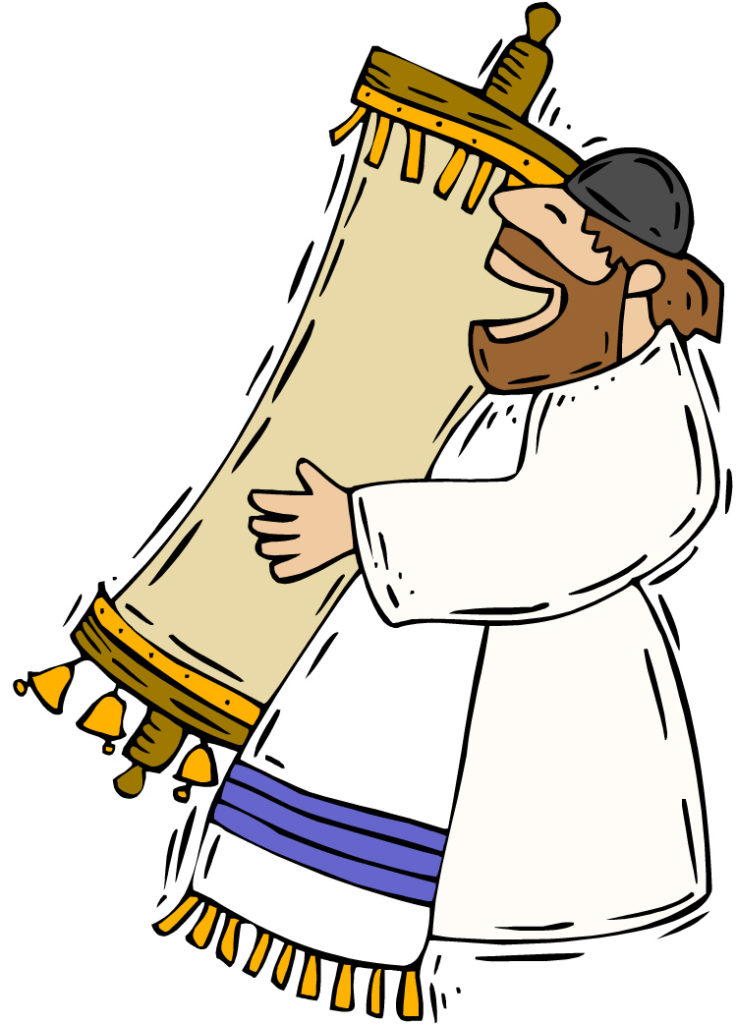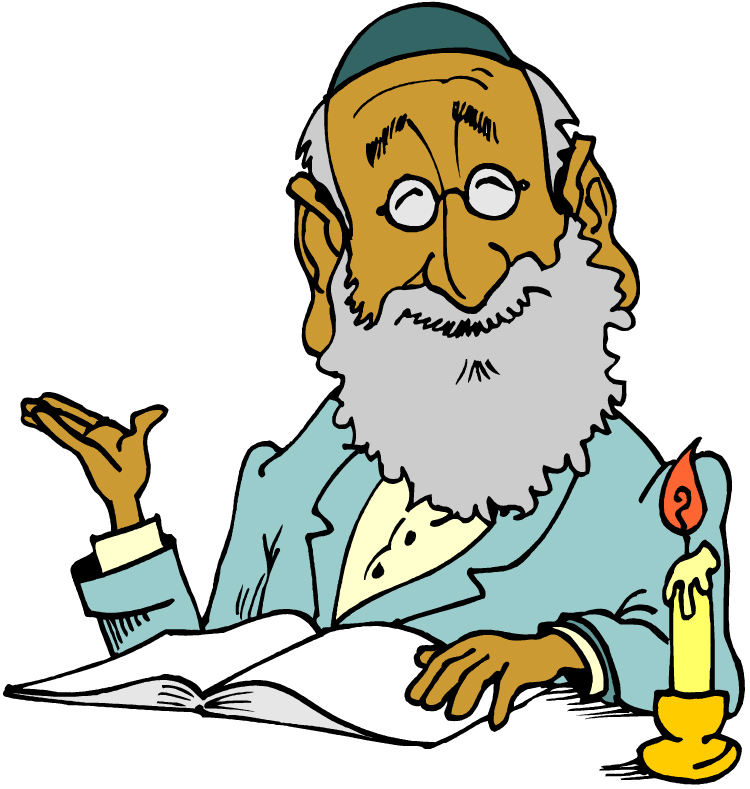To read part one of this post, go to https://hoshanarabbah.org/blog/2017/12/12/genesis-42-46/
Judah Approaches Joseph (Gen 44:18)
Judah came near to Joseph was willing to lay down his life for his younger brother (Gen 44:18–34). This is another prophetic picture of the future Messiah who would come to this earth in willingness to give his life as a ransom to save his brothers. The Scriptures call Yeshua the “Lion of the tribe of Judah” (Rev 5:5) who initiated the process in seeking to save his brothers who were spiritually lost (Rom 5:8; Luke 19:10; Matt 18:11; ), and who Yeshua referred to as the lost sheep of the house of Israel (Matt 10:6; 15:24).
Joseph Had to Reveal Himself (Gen 45)
The brothers didn’t recognize Joseph because he resembled an Egyptian; he had to reveal himself to them. Today, Christians (the descendants of Joseph according to Gen 48:16, 18 and Rom 9:24–27 and the descendants of Abraham according Eph 2:11–19; Gal 3:7, 14, 28, 29), are revealing themselves to their brother Judah through several ways:
- Through donating money to Jewish relief agencies.
- Through Christian tourism of Israel.
- Through Christian interfaith organizations (Bridges for Peace, Christians United for Israel, Christian Friends of Israel, etc.).
- Through the Messianic Jewish Movement
- Through the Messianic Israel Movement.
- Through America’s (and Britain’s) military, political and economic support of the nation of Israel.
Two Messiahs in One Story
Judah and his brothers didn’t recognize Joseph; he had to reveal himself to them (Gen 45:1–4). They were “blinded” to Joseph’s identity. Most of Judah has spiritual blindness to this day (Rom 11:25). They are largely blind to Yeshua the Messiah, son of Joseph, and to the fact that Christians (many of whom are the descendants of Abraham through Joseph) are their long lost brothers. So in our story, Judah plays a dual role: that of spiritually blind Judah and that of the Messiah, the Lion of the tribe of Judah. His former role is prophetically emblematic of the Jewish nation including the modern Jews who have been largely blind to their Messiah (the Son of Joseph), and in the latter role as Yeshua the Messiah who was willing to lay down his life to save his brothers.
Even as Judah was a prophetic antetype of the Jewish people and the Jewish Messiah, likewise Joseph also fulfilled an antetypical role of the Messiah. He too was the spiritual father of his people—Ephraim and Manasseh—the dominate tribes of the Northern Kingdom of Israel who went into apostasy and become as “lost sheep” among the nations of the world (Hos 7:8; 8:8; Ezek 34:16 and numerous other scriptures). Therefore, Joseph prophetically represents the “lost sheep of the house of Israel” and the Messiah who would come and seek out those sheep.
The Jewish sages have seen a prophetic picture of the coming Messiah Son of Joseph (Mashiach ben Yosef), the Suffering Servant in the story of Joseph. They have written about the Suffering Servant Messiah figure, who they felt would be a descendant of Ephraim and who would come to redeem the lost sheep or exiles of the house of Israel in preparation for a second Messiah to come. They refer to him as the Conquering King or the Messiah the Son of David (Mashiach ben David). Although I have found no instances where they also identify Judah with the coming Messiah, it is not hard to see some allusions to this in the interplay between Joseph and Judah. Let’s note what the sages write about Joseph as well as the descendants of his grandsons, Ephraim and Manasseh. Notice the striking similarities between modern Christians and those the Jewish sages viewed would be the followers of Messiah Son of Joseph?
What kind of blessing was this prediction that one day [Jacob’s] descendants—the Ten Tribes—would be scattered among the nations? R. Munk explains: while it is true that the dispersion was caused by the unfaithfulness and sinfulness of Ephraim’s descendants (Hos 7:8ff), Jacob’s blessing was not in vain for “they will return to God” and will have their share in the world to come ([Talmud] Sanhedrin 110b). And R. Eliezer adds: ‘Even the darkness in which the Ten Tribes were lost will one day become as radiant as the day’ (according to the version of Avos d’Rabbi Nosson 36). And in the perspective of history, did not these exiled children of the Patriarchs enlighten the nations among whom they were scattered? They did so by teaching their conquerors the fundamental ideas of the knowledge and love of God, ideals they had never forsaken. Hence they too have a messianic vocation and their Messiah the … Messiah son of Joseph (Succah 52a), also called Messiah son of Ephraim (Targum Yonasan on Exodus 40:11), will play an essential role in humanity’s redemption, for he will be the precursor of the … Messiah Son of David…. (emphasis added, note bolded part).
The Family of Israel Is Finally Reunited/Regathered (Gen 46:1–7)
These verses recount the move of Jacob and his family to Egypt where they were reunited with Joseph and his family. This event prophetically foreshadows a time in the future that the Jewish sages call the final redemption, which is to occur at the coming of Messiah Son of David as he comes to establish the Messianic Era (Millennium). The sages teach that an aspect of that final redemption includes the reunification of the two houses of Israel into one kingdom under Messiah Son of David, which is prophesied in Ezekiel 37:15–28. Interestingly, from antiquity, the Jewish sages have chosen Ezekiel’s prophecy as the corresponding scripture passage from the biblical prophets (called the Haftorah) which, in their understanding, best correlates to the Torah portion (parashah) that includes Genesis 46. These sages understood that the events recorded here in the lives of the patriarchs are indications of future events that would occur in the lives of their descendants.
The final redemption or regathering and then the reuniting of Judah and Ephraim at Messiah’s return is mentioned numerous times in the Scriptures (e.g., Hos 5:15–6:4; 1:11; Acts 3:21; Ezek 37:25). This will be a supernatural work of the Spirit of Elohim (Ezek 36:19–32).
Life in the Land of Goshen (Gen 46:34)
After the reunification of the divided family, the Israelites settled in Goshen, which was in the Nile River delta area and was, and to this day is, the prime farm land of Egypt. It was a veritable promised land compared to the arid regions of Canaan.
Prophetically, could Israel’s settling in Goshen after being reconciled and reunited be a spiritual shadow picture of the Millennium? I believe so.
The Jewish sages have long taught that history for the people of Israel is continually repeating itself in cyclical patterns as YHVH accomplishes his purposes among his people over and over again. He is continually endeavoring to reveal his plan of redemption and reconciliation to those who have eyes to see. He is continually reaching out the loving hand of redemption to the next generations of Israelites. This cycle, like a wheel that keeps turning around and around, will turn one more time in the last days in what the sages refer to as the final regathering of the exiles or the final redemption of Israel. This will involve not only the resurrection of the dead, but the reuniting of the divided kingdom of Israel, the regathering of the Israelite scattered exiles back to the land of Israel, and the coming of the Messiah who will set up his reign over this earth called the Messianic Era. This is even better known in Christians circles as the Millennium. The Jewish sages have taught this for thousands of years—and still teach it—because they had read and believed what the biblical prophets have written in this regard.
Conclusion
I believe that the story of the reuniting of Joseph with his brothers a prophetic antetype speaking to the future reunification and redemption of the two houses of Israel with the Messiah as the initiator and focal point of this redemptive process. This process began to occur at the first coming of Yeshua and will culminate at his second coming and it involves the regathering of the lost sheep of the house of Israel. This process will climax at the end of the age where the children of Israel will be regathered and reunited to worship YHVH in spirit and in truth (John 4:23) under the rulership of King Yeshua the Messiah, Son of Joseph/David (Ezek 37:15–28) during the one-thousand-year-long Millennium.
Joseph, Ephraim, Manasseh and Benjamin in End Times Prophecy
Here are a few of my thoughts on who Joseph, Ephraim, Manasseh and Benjamin represent in end times Bible prophecy.
In studying the Jewish sages of old, I am amazed at how prescient they were about end time events. They gained this understanding often as they studied the lives of notable biblical characters.The sages had the strong sense that history would repeat itself— often again and again for the people of Elohim. This they observed in the cyclical patterns of Israel’s own history where YHVH gave them the truth, they remained faithful to it for a while, and turned from it, were punished and then returned to Elohim only to have the cycle repeat itself again and again.
As I have studied their method of predicting the future based on past events in Israel’s history, this has led me to some of my own speculations, which I present to you below.
Joseph, Ephraim and Manasseh Antetypical of Christianity
Joseph’s wife was the daughter of an Egyptian priest. Jospeh married into the religious system of Egypt. He is a picture of Christian church, which has married itself to Babylon by syncretizing itself with certain pagan traditions and belief systems. Joseph is a picture of the end time lukewarm church. Ephraim and Manasseh were products of the union of Joseph (an Israelite) and Potifera (an Egyptian). Though they were Israelite, they were genetically a mixture of both Israelite and Egyptian blood. In fact, they resembled Egypt so much that Jacob, when blessing them, didn’t even recognize who they were. They were strangers to him. Though they were spiritual mulattos, their spiritual destiny was to identify wholly with their Israelite heritage, which would necessitate their renunciation of their Egyptian ties. In the end times, YHVH is calling Christians to renounce the pagan ties they have through their association with the harlot church system and to come completely out of spiritual system of Babylon, which is a mixture of biblical truth with pagan traditions and traditions of men the make of non-effect the word of Elohim.
Benjamin Is Antetypical of the End-Time Bride of Yeshua
Benjamin was the “son of my [Jacob’s] right hand.” He was Jacob’s youngest and most beloved son (after Joseph’s departure). Judah was willing to lay down his life for his youngest brother. Because of the love Judah had for Benjamin, the descendants of both tribes never separated, and the tribe of Benjamin stayed permanently identified with the tribe of Judah. Even Paul, the Jew and an apostle to the Gentiles, was from the tribe of Benjamin.
In the end times, Christians are like Joseph and his two sons. Most Christians take after Manasseh, which means “forgetful” in that they have forgotten the Torah. Those Christians who love Yeshua and keep his (Torah) commandments take after Ephraim, which means “doubly fruitful” in that they have both Yeshua and the Torah. Judah is both a picture of the Jews and of Messiah Yeshua, while Benjamin could also be a picture of the remnant of Torah-keeping believers who have permanently attached themselves to their Hebrew roots, to the Torah, to Yeshua and who have no involvement with the spiritual Babylon.
Joseph Is a Type of the American Government
Joseph became ruler of Egypt. In the end times, America, which is the largest Christian nation and hence contains the largest number of Joseph’s descendants (through Ephraim), is the leader of spiritual Babylon. In Egypt there were seven years of plenty, then seven years of famine. Egypt was the greatest nation of the world at the time. When the world (and Egypt) fell on hard times economically due to famine, Joseph turned Egypt into a socialistic state. This he accomplished through the Egyptian government’s purchase of all the means of production, the land and by indebting the world to it and by turning its own people into serfs working for the government. Is this same scenario happening in America? We have had our years of prosperity, and now we are entering into seven lean years where the government’s answer to these problems is to socialize this nation at a rapidly expanding rate including the nationalizing, in part, of more and more of the private business sector.







